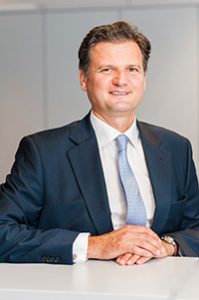Views from ...
2022 kicks off with a bang
 Yves Desbazeille, FORATOM Director General
Yves Desbazeille, FORATOM Director General
We have certainly had a very energetic start to 2022, with the leaked draft of the Complementary Delegated Act becoming available on 1 January 2022. The coming weeks will be crucial, as the Member States and Sustainable Finance Platform have until 21 January to submit their comments on this Commission proposal which adds nuclear to the Sustainable Finance Taxonomy, under certain conditions.
Let me first of all say that we welcome the fact the Commission has done what it promised and issued a CDA with nuclear before the end of 2021. But of course the devil is (as always) in the detail. Together with our members we have conducted a thorough assessment of the text and identified some areas where improvements would be appreciated. The four top priorities of concern to us can be summarised as follows:
- Electricity generation from nuclear energy in existing installations: The Technical Screening Criteria proposed under this item refer only to the lifetime extension of existing installations and not normal operation and maintenance of nuclear power plants, thus creating significant uncertainty. It is essential that both of these are also clearly covered under this section of the CDA.
- Requirements relating to the use of Accident-Tolerant Fuels should only come into effect once such fuels are available on the market: The Technical Screening Criteria include a requirement that existing and new plants must use Accident-Tolerant Fuel. Given that Accident-Tolerant Fuels are still at the research phase we believe this requirement should be removed and instead limited to existing legislation and best available technologies.
- The deadline for an operational repository for High Level Waste and Spent Fuel should be linked to the date when it will be needed (rather than a fixed deadline of 2050): The Technical Screening Criteria proposed include a requirement that each project must be accompanied by a plan for a final repository for High Level Waste (HLW) which is operational by 2050. In our opinion, this requirement is unjustified. First of all, because projects which receive a construction licence during the 2040’s will not require such a solution in the short or medium term. Secondly, because it restricts the management of HLW and spent fuel to just one technology, although research continues into many other long-term solutions relating to the treatment and recycling of HLW which would be de facto excluded based on such a proposal.
- The assessment of nuclear projects should be in full compliance of existing legislation and in accordance with Article 41 of the Euratom Treaty: The proposal broadens the current powers of the European Commission over the approval of projects and verification of compliance with the legislation, beyond what already exists today. This adds an extra layer of checks and complexity thus creating significant uncertainty and potential delays.
You can find more details on this, as well as other issues identified, here.
Taxonomy is just one of our priorities, as there are many political files on the EU’s agenda which are of importance to the industry. Most notably under the EU Green Deal and its recently released Fit for 55 package. Here we will be continuing to promote the invaluable contribution of nuclear towards achieving the climate objectives whilst ensuring security of supply.
During the second half of last year we saw significant momentum in terms of support for nuclear and recognition of the fact that not only is it low carbon, but it could also help to prevent future energy crisis such as the one we are facing today. We will continue to build upon these positive developments, ensuring that stakeholders receive fact-based data which will enable a policy framework capable of taking us where we want to go. We will also continue to push for the issue of security of supply to be given serious consideration within the EU’s decarbonisation policies. Because at the end of the day not only must we decarbonise our energy systems, we must also make sure we have enough energy to cover our basic needs and to supply electric vehicles, hydrogen for use in industry etc.
In line with all of the above, we also plan to prepare for a ‘nuclear renaissance’. As an industry we must ensure that we are fully equipped to meet future demand. This means making sure that we have a strong European supply chain. Without forgetting that access to a skilled workforce is also key.
Furthermore, we will continue to support innovation within the industry. Take for example Small Modular Reactors. Over the past year we have been laying the groundwork by liaising with our members and the European Commission. We now plan to take this work one step further by developing, for example, a position paper outlining the key focus areas and policy requirements.
In addition, we will shortly be publishing our “Quality Assurance Guideline for Procuring High-Quality Industrial Grade Items Aimed at Supporting Safety Functions in Nuclear Facilities” which is a successful example of the leading role FORATOM can play in coordinating the European nuclear industry. This document offers guidance and advice for European stakeholders, primarily nuclear installation licensees, on a methodology for establishing confidence in high-quality industrial grade items intended for applications important to nuclear safety.
Above you have just a glimpse of some of the issues that we will tackle this year – there are, of course, many more.
At the same time, we hope that we will soon be able to meet once again in person.
In this respect, I would already encourage you to mark your diaries, as we plan to hold our NuclearEurope2022 conference in Helsinki, Finland, on 7 June 2022 with a networking dinner on the night before.
